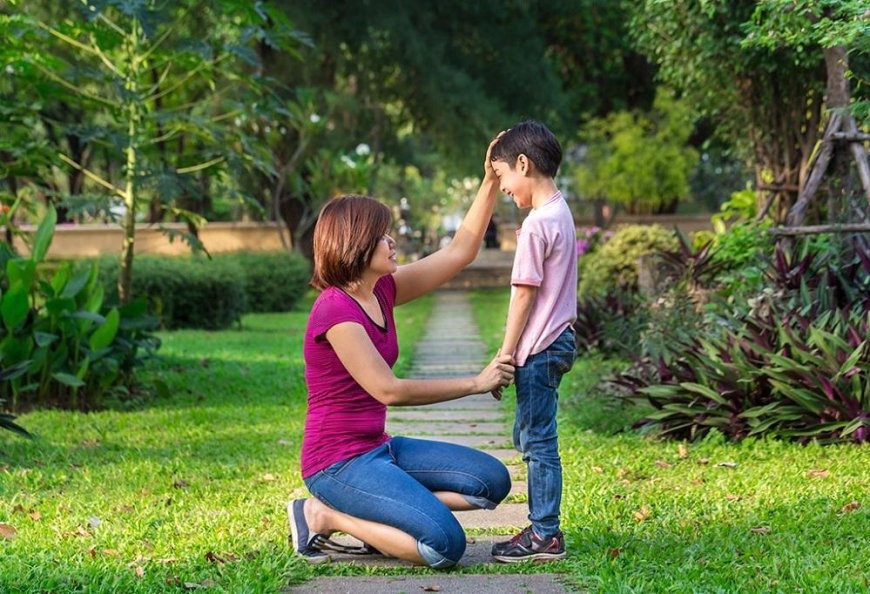How to teach your kid to be respectful
many as unnecessary. Is it worth teaching a child to respect oneself and others today, and if so, How to teach your kid to be respectful.

Showing respect in times of loosening social conventions and increasingly common hate (especially on the Internet) becomes niche, insignificant and perceived by many as unnecessary. Is it worth teaching a child to respect oneself and others today, and if so, How to teach your kid to be respectful.
What does respect mean?
The ability to show respect is conducive to life without conflicts with others, in an atmosphere of mutual understanding of the needs and respect for the rights of others human.
Respect for someone is the recognition of his right to a different opinion, his own views in various areas of life and acceptance of his own decisions. It also favors the development of empathy. It helps in establishing lasting bonds with various people, and also builds personal authority.
Showing respect means accepting other ways of thinking and maintaining emotional distance when disagreeing. It allows you to engage in discussions that are based on arguments aimed at understanding rather than convincing or - even worse - defeating the interlocutor.
Respect in speech and behavior
Respect in the manner of speaking is the use of assertive communication. Formulating own judgments in a way that does not violate the interlocutor's privacy, for example: I believe that ..., My assessment of the situation is ..., I want to say ..., I think differently ... It is also giving the interlocutor messages that we respect his right to a different opinion, e.g. This is a valuable observation ..., Interesting view ... I have to think about it ... I would like you to heed the argument ... Respecting a person is having a conversation in a way that shows the other that I am not judging, labeling, not judging. Raised tone in the conversation, violent gestures or other behaviors influencing the atmosphere of the conversation (e.g. walking around the room, clenching hands, rubbing the face with your hands, leaning over the interlocutor, etc.) should be avoided.
Must Read: How to learn online effectively?
We show respect in behavior, especially by preserving the psychological space (in our culture, the safe distance is approx. 50 cm in private situations, and from 100 to 150 cm in official situations), adapting gestures and articalure to the interlocutor (we either sit or stand, but always both sides the same), we give signals that we are listening actively (nodding, nodding: Mhh ... Yes ... I understand ... That's clear ...). We listen without interrupting the speech until the end, at the same time we look at the interlocutor and take into account his non-verbal messages (signs of nervousness, hand gestures and facial expressions, tone of voice).
Consequences of disrespect
Respect is a natural need of every human being, regardless of age, sex, origin or education. It is one of those needs that we consider inalienable rights because it is closely related to human dignity. We feel very strongly about other people's disrespect towards us, and children experience such situations as strongly as adults.
The consequences of feeling that we are not respected by others (parents, siblings, family members, peers, teachers, etc.) can be very serious. On the one hand, they can lead to very low self-esteem, which is likely to translate into self-esteem and make it difficult or even impossible to achieve success in life. On the other hand - it can consolidate the child's belief that (if he is not shown respect) he does not have to respect others, and this is a simple way to disturb a behavior that manifests itself, among others, by by breaking social norms in terms of relationships with other people.
Learning to respect by imitation
Parents want well for their child. It is these good intentions that make them constantly remind: Bow down to your neighbor! Say "good morning" to the Lady. Do not interrupt. Stay out of adult conversations. Listen to what I say to you. Do not shout. You will do what I told you to do. What does the child hear and feel? Mum doesn't know that I can behave ... Dad doesn't have to, but I have to ... Adults can interfere when I say ... Adults are allowed to shout, command, give orders, ignore my opinion and needs ... When I grow up , exactly that. What will happen when he grows up?
Children are like an open book. We write down everything we do, say and expect. We teach them habits by setting an example in everyday life. We want them to be good people, respect others, have high self-esteem and self-confidence, be successful and feel happy¦ And that's how it should be. Therefore, we need conversations and discussions with the child, but above all, we need the daily transmission of parents' behavior. It is through this example that the child builds first judgments about the world, people, attitudes towards other views and ways of thinking, about authorities.
And when the time of the teenage storm comes, in which all opinions built by adults will collapse, the authenticity of the attitudes that a child has experienced every day may become the foundation of his respect for himself and other people.
